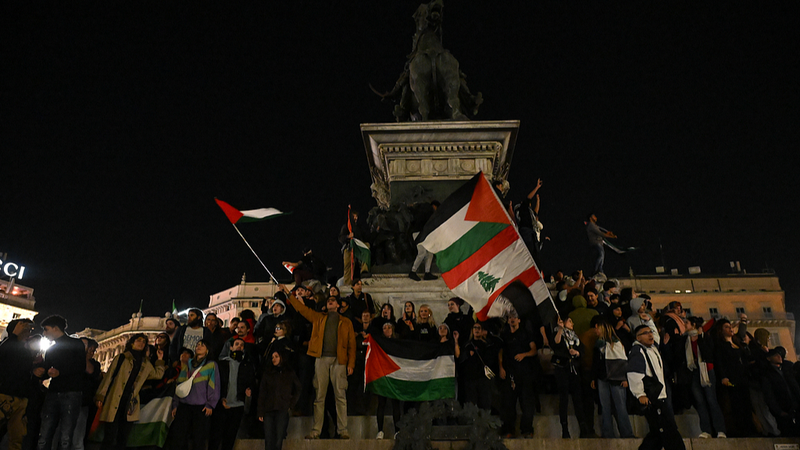When the Israeli Navy intercepted the Gaza-bound Global Sumud Flotilla (GSF) last Thursday, it ignited a wave of international outrage and renewed calls for humanitarian access to one of the world’s most contested regions. Comprising around 50 vessels and over 500 volunteers from 40 countries, the GSF was carrying food, medical supplies, and hope to Palestinians under blockade.
From Athens to Ankara, world leaders condemned the seizure. Greek Foreign Minister George Gerapetritis vowed that Greece would “do everything in our power” to protect its citizens on board, including a sitting member of parliament. Nearby, Italian Foreign Minister Antonio Tajani slammed the action as “well beyond legitimate self-defense” as thousands across Rome, Milan and Naples took to the streets, occupying train stations and staging university sit-ins.
In Germany, officials engaged Israel in urgent talks while Berlin saw thousands rally in solidarity. The Dutch Foreign Ministry confirmed six of its nationals remain detained, spurring protesters in The Hague. Britain’s Foreign Office said it was in contact with families and expected a safe resolution.
Spain, Portugal and France had already voiced concern for their citizens earlier in the week. In Barcelona, some 15,000 marchers chanted “Gaza, you are not alone,” while in Paris and Marseille, demonstrations—some escalating into arrests—targeted arms suppliers linked to the conflict.
Turkey’s Foreign Ministry described the interception as “an act of terrorism that gravely violates international law,” as prosecutors in Istanbul and Ankara opened investigations into charges of deprivation of liberty and hijacking. Jordan’s Foreign Ministry called the move a flagrant threat to freedom of navigation and civilian safety.
This drama unfolds against a nearly two-year escalation that has claimed more than 65,000 lives in Gaza—nearly half women and children—and plunged two million people into a deepening humanitarian catastrophe. As diplomatic warnings multiply and grassroots protests surge, the world watches to see whether this latest flashpoint will open new pathways for aid and accountability in the region.
Reference(s):
cgtn.com



